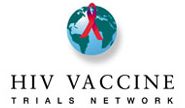A vaccine trial is a clinical trial that aims at establishing the safety and efficacy of a vaccine prior to it being licensed.
Methodology

A vaccine trial might involve forming two groups from the target population. For example, from the set of trial subjects, each subject may be randomly assigned to receive either a new vaccine or a "control" treatment: The control treatment may be a placebo, or an adjuvant-containing cocktail, or an established vaccine (which might be intended to protect against a different pathogen).
After the administration of the vaccine or placebo, the researchers collect data on antibody production, on health outcomes (such as illness due to the targeted infection or to another infection). This data is summarized as a statistic, which is used to estimate the protective efficacy of the vaccine. Then, following the trial protocol, the specified statistical test is performed to gauge the statistically significant of the observed differences in the outcomes between the treatment and control groups.
Side effects of the vaccine are also noted, and these too contribute to the decision on whether to license it.
Methodological issues and problems
Vaccine trials may take months or years to complete, since a sufficient time period must elapse for the subjects to react to the vaccine and develop the required antibodies.
References
External links
- Vaccine Research Center Information regarding preventative vaccine research studies


0 komentar :
Posting Komentar